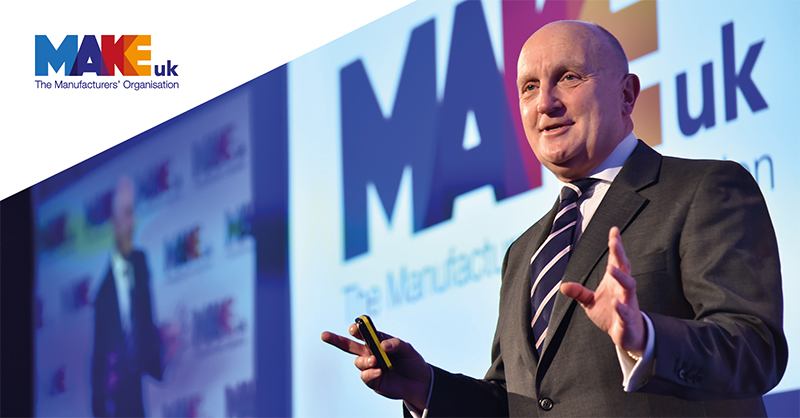
Industry leaders urge the government to “seize the goodwill” as the country is at a critical juncture in terms of attracting global investment.
Trade unions and manufacturing leaders in the United Kingdom have issued a warning that big international manufacturers will defer investments in the country unless the Labour Party demonstrates a commitment to expanding the industry.
Exactly one month after Keir Starmer’s resounding victory, the leaders of the Trades Union Congress (TUC) and Make UK, an organization that represents 20,000 employers in the United Kingdom, have joined forces to warn the government that immediate action is required to launch a long-term industrial strategy. Failure to do so may result in the loss of billions of pounds in investment from other countries.
Despite their satisfaction with the government’s commitment to business, as indicated in the king’s speech a month ago, they stated that the United Kingdom was at a critical juncture in the global race for investment.
In an interview, Stephen Phipson, CEO of Make UK, and Paul Nowak, General Secretary of the Trades Union Congress (TUC), stated that putting excellent employment at the heart of a strong and rapid industrial plan would benefit both businesses and workers.
Phipson begged the audience, “Please make this a priority.” “We can see that the government has thousands of duties to accomplish. In addition, they are passionate about everything else. It is critical that they proceed with it since we can see the potential benefit.
“Up to this point, the messaging has been good, and I have no complaints about the level of excitement and commitment. However, we are only attempting to draw their attention to the fact that this should be a major concern.
Taking advantage of the goodwill that people have been waiting for, Nowak concluded. Because you have a 172-seat majority, you can now make long-term decisions with the support of both corporations and unions.
Prior to the general election, Labor promised to launch a contemporary industrial policy with the goal of redrafting a comprehensive economic plan. This was in response to the previous Conservative government abandoning its version, which was faced with criticism from various industrial organizations.
The administration is dedicated to relaunching the Industrial Strategy Council, which was established by the previous Tory government in 2018 but disbanded in 2021. Jonathan Reynolds, the business secretary, is in charge of this project. Important cornerstones of the industrial plan have also been revealed, including the formation of Great British Energy and the creation of a national wealth fund worth 7.3 billion pounds.
On the other hand, Phipson argued that large international businesses were postponing their investments in the United Kingdom until they had more information. I’ve heard it directly from a handful of the most well-known names you’re familiar with. We are said to have intentions in both Spain and Germany. However, they want to know what the plan is for the United Kingdom. Until then, why would I invest?
Nowak’s office in central London, which served as the Trades Union Congress (TUC) headquarters in the 1950s, was where the union leader and CEO of the UK’s largest manufacturing group spoke together. They emphasized that more reforms and investments were needed as part of the industrial plan to increase apprenticeships and training.
With the release of a joint report calling for a strong plan, they stated that Britain was at a key juncture on its path to becoming a greener economy. They claimed that manufacturers were facing a “perfect storm” of increased occupational illness, early retirement, and an ageing workforce, as well as a dearth of digital skills essential for enterprises to adopt new technology.
The combined effort comes as some sector executives express alarm about Labor’s measures to increase workers’ rights. The Confederation of British Industry (CBI), a lobbying organization, has lobbied for the restrictions to be relaxed, arguing that they could harm jobs and the economy.
Phipson, on the other hand, claimed that Make UK was “not in the same place as the CBI.” This was owing to manufacturers’ positive relationships with trade unions and their belief that higher pay, terms, and working conditions would help industrial businesses become more productive.
“We don’t typically use zero-hours contracts, and we find discussions with Angela Rayner and her team to be really pragmatic around that,” he told me. “The manufacturing sector is paying above average,” he said.
The fact that Starmer’s government is willing to bend in to economic interests is another cause of concern for the Labour Party’s left. Meanwhile, the chancellor, Rachel Reeves, has cut the number of infrastructure projects and warned that the current status of the public finances will require more revenue-raising tax and spending measures in the upcoming budget on October 30.
A spokesman from the Department of Business and Trade stated, “Our new industrial strategy will deliver long-term, sustainable, and inclusive growth right across the United Kingdom by driving investment into our economy.”
It will be important to ensure that the G7 continues to grow at the highest rate possible, creating more opportunities for everyone and converting the United Kingdom into a sustainable energy superpower. We will work with the private sector to aid businesses around the nation.